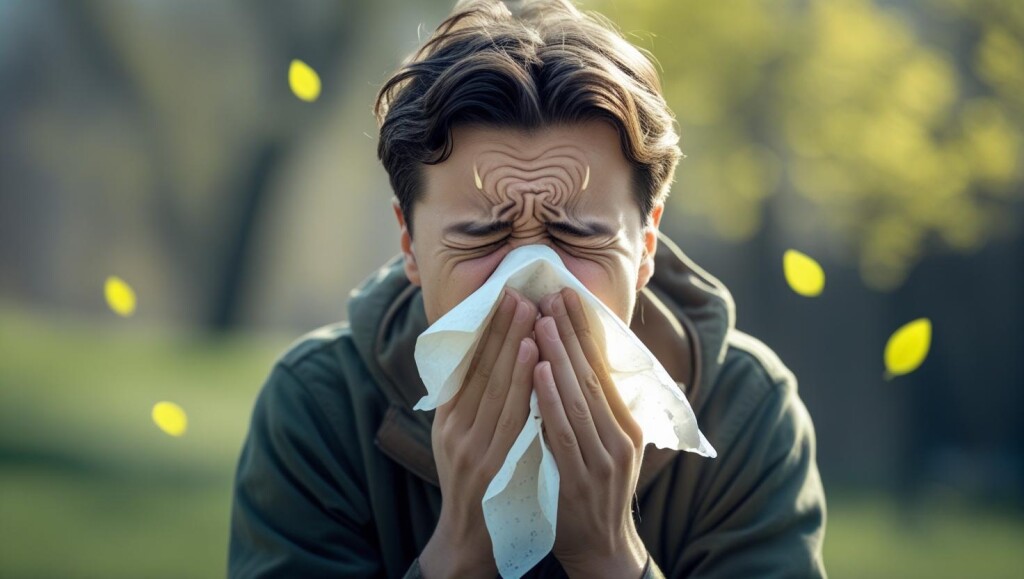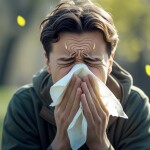Seasonal allergies, commonly referred to as hay fever or allergic rhinitis, affect millions of people each year, especially during spring and fall. These allergies are caused by the immune system reacting to airborne substances like pollen, which are usually harmless to most people. While medications can offer relief, it’s important to understand what seasonal allergies are, their common triggers, and alternative strategies to manage symptoms before turning to over-the-counter (OTC) or prescription drugs.
Recognizing Seasonal Allergies
Seasonal allergies occur when your immune system identifies pollen or other allergens as a threat and releases histamines to combat them. This leads to common symptoms such as:
- Sneezing
- Runny or stuffy nose
- Itchy or watery eyes
- Scratchy throat
- Fatigue
- Sinus pressure or headaches
These symptoms typically align with the growing seasons of plants—spring and early summer (tree and grass pollen) and late summer to early fall (weed pollen, like ragweed).
Uncovering the Triggers: It’s More Than Just Pollen
While pollen is the main culprit, it's not the only trigger. Other common seasonal allergens include:
- Mold spores – thrive in damp environments, especially during rainy seasons
- Dust mites – though more common indoors, they can still cause seasonal flare-ups
- Pet dander – pets spending more time outdoors may carry pollen inside
- Air pollution – smog and other pollutants can worsen allergic reactions
Identifying your personal triggers—either through a process of elimination or allergy testing—can make treatment and prevention more effective.
Rethink Before You Medicate: Not All Remedies Are Equal
Medications are often the first line of defense against seasonal allergies, but not all are created equal. Here’s what you need to know about the most common options:
1. Antihistamines
These help block histamine, the chemical responsible for allergy symptoms. While they provide quick relief, they can cause drowsiness, dry mouth, and dizziness—especially first-generation antihistamines like diphenhydramine.
2. Decongestants
These help reduce nasal swelling and congestion but are not recommended for long-term use. Overuse can lead to a rebound effect, making your symptoms worse once you stop.
3. Nasal corticosteroids
These are considered the most effective treatment for nasal allergy symptoms. However, it may take a few days of consistent use to feel the full effects, and side effects like nosebleeds or irritation are possible.
4. Combination medications
Some allergy drugs combine antihistamines and decongestants. Be cautious, as they can amplify side effects like increased heart rate, insomnia, or anxiety.
5. Allergy shots (immunotherapy)
This long-term treatment involves gradually introducing allergens into the body to build tolerance. It’s ideal for people with severe symptoms not managed by standard medications.
Tip: Always consult a healthcare provider before starting a new medication, especially if you have pre-existing conditions or are taking other drugs.
Natural Alternatives & Preventive Strategies
Before jumping into medications, try these preventive steps and natural alternatives that can reduce your exposure and sensitivity:
- Monitor pollen forecasts and limit outdoor activities during peak times (usually morning and windy days).
- Keep windows closed and use air purifiers indoors to maintain a clean breathing environment.
- Shower and change clothes after coming indoors to remove pollen from your skin and hair.
- Use saline nasal rinses to flush allergens out of your nasal passages.
- Try herbal remedies like butterbur, quercetin, and stinging nettle—but consult your doctor first, as they may interact with other medications.
Final Thoughts: Personalized Care is Key
While seasonal allergies can be frustrating and disruptive, understanding your specific triggers and symptoms is crucial for effective management. Medications can offer relief, but they are not always the best first step. By combining lifestyle adjustments with informed medical advice, you can navigate allergy season more comfortably—and with fewer side effects.
When in doubt, consult an allergist or healthcare provider for a personalized approach, including the possibility of allergy testing and a tailored treatment plan. Managing seasonal allergies is not just about symptom relief—it's about improving your quality of life throughout the year.









